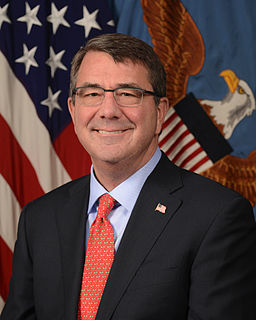A Quote by Barack Obama
We continue to urge China and other claimants to work constructively to resolve these disagreements, so that the South China Sea - which is so vital to the global economy - can be defined by commerce and cooperation.
Related Quotes
There's a national ambition, a collective, in a sense, political ambition, which I think is the thing we see from far away. That's the fact that China's building roads and airports and extending its reaches out into the East China Sea and the South China Sea, and in a way that's putting it into some tension with its neighbors.
When I was in government, the South African economy was growing at 4.5% - 5%. But then came the global financial crisis of 2008/2009, and so the global economy shrunk. That hit South Africa very hard, because then the export markets shrunk, and that includes China, which has become one of the main trade partners with South Africa. Also, the slowdown in the Chinese economy affected South Africa. The result was that during that whole period, South Africa lost something like a million jobs because of external factors.
The Philippines made a lawful and peaceful effort to resolve their maritime claims with China using the tribunal established under the Law of the Sea Convention (Unclos). The tribunal's ruling delivered a clear and legally binding decision on maritime claims in the South China Sea as they relate to China and the Philippines - and that ruling should be respected. We believe this decision can and should serve as an opportunity to renew efforts to address maritime claims peacefully.
I have done business in China for 25 years, so I know that in order to get China to cooperate with us, we must first actually retaliate against their cyber-attacks so they know we're serious. We have to push back on their desire to control the trade route through the South China Sea through which flows $5 trillion worth of goods and services every year.
I am against portraying China as the demon of the global community. China has grasped more quickly than other countries what globalization means and what it demands. The country has learned how to use other people's innovations for itself. India, incidentally, is not far behind China in this respect. Both are not nations in the European sense, but rather cultural communities with enormous markets. The challenge of the future is to work out how to deal with that.






























